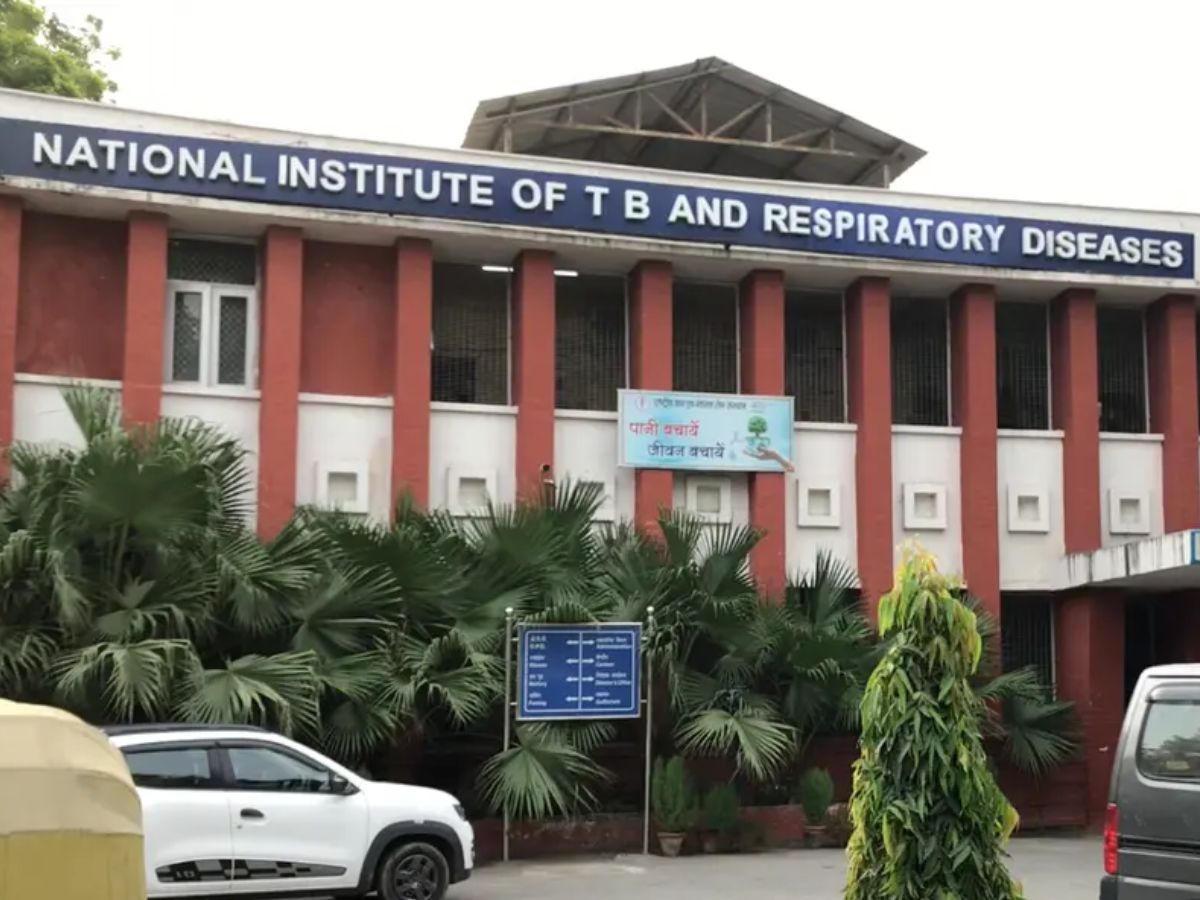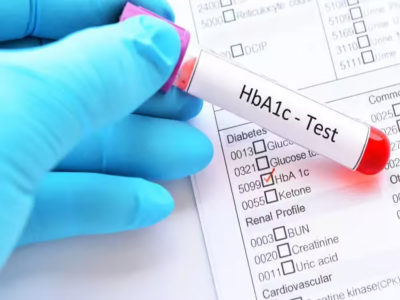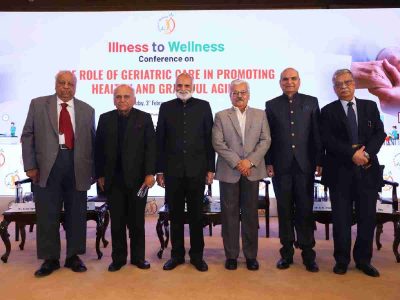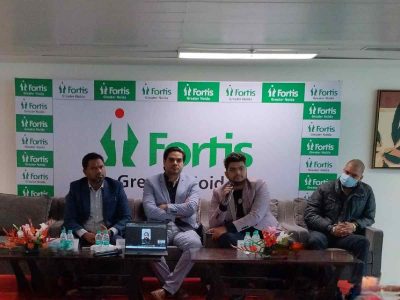The World TB Day is observed on March 24 every year to create public awareness about tuberculosis (TB) and efforts to eliminate it.
According to a World Health Organisation (WHO) report, India continued to be the largest contributor to global tuberculosis cases in 2022. The report stated that 33 countries with most TB cases accounted for 87% of them in the year, with India’s share being 27%.
The National Institute of TB and Respiratory Diseases (NITRD) is a leading hospital in Delhi, which patients visit as the last resort. An autonomous institute under the Union Ministry of Health & Family Welfare, it is famous for TB treatment and helping fight the disease.
Patriot visited the hospital to see the state of affairs.
Phoolkumari, who was sitting in a lawn of NITRD with relatives and guardians of other patients, approached this hospital for her husband’s treatment after consulting several hospitals.
“My husband used to work at a mill. For the last two years he has been suffering from TB. We first sought treatment in Patna and other places, then Lucknow but then they referred him here. This is my last hope. If he does not recover here, then no hope will remain,” she told Patriot.
“He has been admitted to the hospital for the last 15 days. The doctor said that they will conduct the operation after a month. The hospital provides everything including food and medicine. Treatment is good here, there is no fee,” she said further.
Gudia has also come to NITRD after visiting many hospitals of Delhi in the hope of getting her minor brother treated.
She is the only caretaker of his brother after her father and mother died two and eight months ago respectively. Despite severe financial problems, she has been in the hospital for the last five days for her brother’s treatment.
“I visited RML, Mahavir and one other hospital but the doctors refused treatment despite my request. Then we came here. Now some tests have been done,” said Gudia, who lives on rent in Nangloi.
“We have no source of income except for my brother’s job at a cloth shop. We are suffering financial problems. We manage rent somehow, after compromising on other things,” said Gudiya before breaking down.
People who were visiting the hospital from across the country were satisfied with the treatment in the hospital, sanitation, and cleanliness.
Three people, who came from Moradabad, were sitting under a tree.
“Our patient is suffering from a lung-related problem. The hospital is good, tests among other facilities are also fine,” they said.
Other patients Patriot spoke to were at least satisfied with the treatment in the hospital.
Dr Dewan, former Director and Principal Consultant (Surgery) at NITRD, told Patriot, “The situation of TB patients is improving after the pandemic. Tuberculosis was brought under control after the government took 2-3 steps against it. As per the PM TB Abhiyan’s Nishya Mitra scheme, people can adopt TB patients. There are as many as 20-25 lakh TB patients every year in India, and around 11 lakh patients get covered through it. So this scheme is catching up.”
He added further, “If this scheme is persisted with, we can eradicate it completely by 2030 which is WHO’s target.”
The Union ministry developed the National Strategic Plan (NSP) for Tuberculosis (2017-2025) with the goal of eradicating the disease by 2025, five years ahead of the global target.
The NITRD, which is playing its part in eradicating the disease, is unique in many ways.
“There are two or three reasons for it. One, surgery facilities are available only here. We have the latest equipment for surgery including robotic equipment. Then TB experts are also available here,” said Dr Dewan, who is also the consultant of the National TB Control Programme.
“Secondly, we have a technique through which we can do the latest microbiology tests and can find out what medicines we should provide to patients. We have all the facilities. We also have separate wards for patients. There is no institute available here which has all the facilities like ICU, surgery, among others,” he said.
“NITRD is affiliated to the Central Government. So we have extra equipment thanks to appropriate funding. After Covid, we got donations of oxygen concentrators beyond our need. So, we made a scheme through which patients who needed to visit hospital again and again could carry it to their home too. We’d sign on a certificate and provide it to their homes till they required it. We have the latest medicines available for respiratory illnesses. We try our level best but sometimes we fall short. God has been kind to us,” added Dr Dewan.
“My message to people is that they shouldn’t consider TB as a stigma. If a TB case comes to the forefront, treatment should be given immediately for it. A TB positive patient is not an individual problem but dangerous for everyone. So we all should help him recover. The government and society should both help to rehabilitate the affected.”





